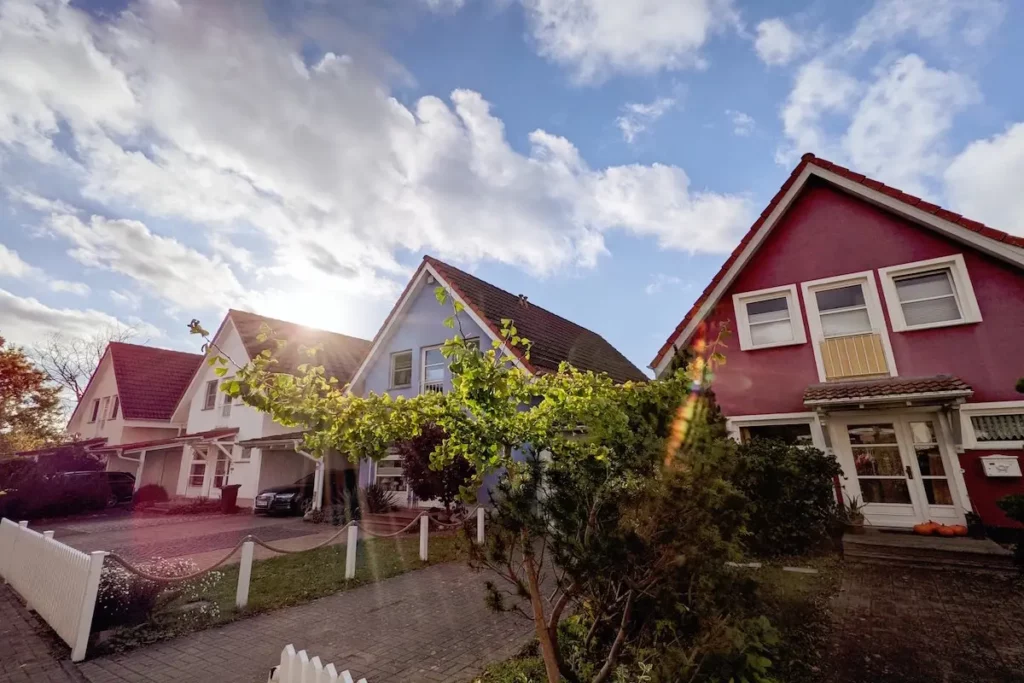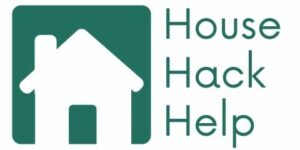Can You House Hack with an FHA Loan?
Yes, you can house hack with an FHA loan as long as your property has four units or fewer and you comply with all relevant lender restrictions.
What’s an FHA Loan?
An FHA loan is a mortgage that is insured by the US Federal Housing Administration. FHA loans have more flexible credit score and down payment requirements than other types of mortgages and can only be issued by an approved third-party lender.
The FHA established these loans to assist low-to-moderate-income homebuyers, so they’re especially popular with first-time homebuyers.
They offer extremely low down payments and a fixed rate over 30 years. You can put as little as 3.5% down in most cases!
FHA loans are incredibly helpful for beginner house hackers and investors given their low down payments and long-term, fixed rates.
How to Get an FHA Loan
To get an FHA loan, you must apply and get approved by an FHA-approved lender.
Fortunately, the FHA has approved most banks and mortgage lenders and the FHA loan approval process seldom takes longer than a day.
Independent banks and lenders set their own requirements and refinance rates as long as they meet federal minimums.
Be prepared to submit all required documentation to your selected lender or lenders. Common required documents include the following:
- Tax returns for the last two years
- Last two pay stubs
- Government-Issued Identification
- Bank statements
A good strategy is to get pre-approved through multiple lenders and to select the one that offers you the best terms.
FHA Loan Requirements
Since the federal government backs FHA loans, they come with more flexible lending requirements than conventional loans. For example, banks are often able to issue FHA-backed mortgages to homebuyers with lower credit scores.
Borrowers generally need a FICO score of at least 500 to qualify for an FHA loan. This is significantly lower than the credit score required to take out a conventional mortgage (which is typically at least 620).
If you have a FICO score of 580 or higher, you may be eligible for a down payment as low as 3.5%. Conventional loans will usually require a down payment between 5-20%.
Borrowers who have faced bankruptcy and foreclosure, or have no credit history, may also be able to qualify for an FHA loan in certain circumstances.
Typically, you should wait about two years after a bankruptcy and three years after a foreclosure before applying for an FHA loan, although some lenders will make exceptions for extenuating circumstances.
Federal requirements for FHA loans are as follows:
- To qualify for a 3.5% down payment, a borrower needs a FICO score of at least 580.
- To qualify for a 10% down payment, a borrower needs a FICO score of at least 500.
- MIP (Mortgage Insurance Premium) is required.
- Debt-to-Income Ratio (your total monthly payments divided by your monthly income) must be less than 43%.
- The home must be the borrower’s primary residence.
- Borrowers must have steady income and proof of employment.
FHA Loan Limits
FHA loan limits are updated each year and depend on the county where you are purchasing your home, and the number of units within the property.
The lender will also consider your finances when determining the maximum amount that you can borrow.
The FHA website has provided the following chart that lists average lending limits for various property sizes in low and high-cost areas for 2022:
Low-Cost Area (FHA Loan Limits)
| Single | Duplex | Triplex | Quadplex |
| $420,680 | $538,650 | $651,050 | $809,150 |
High-Cost Area (FHA Loan Limits)
| Single | Duplex | Triplex | Quadplex |
| $970,800 | $1,243,050 | $1,502,475 | $1,867,275 |
Prospective homebuyers can use the HUD search engine to calculate specific loan limits in their area.
Can You Use an FHA Loan on a Multi-Unit Property?

Yes, the FHA insures loans for both single-family and multi-family properties with four units or fewer if the buyer is planning to live in one of the units for a minimum of one year.
The owner must also move into the property within a set amount of time specified by the lender, usually 60 days, and the property must meet FHA standards.
When you apply for an FHA loan on a multi-unit property, your lender may consider your estimated debt-to-income ratio with expected rental payments.
Can I Rent Out My Rooms with an FHA Loan?
Yes, you can rent out spare bedrooms with an FHA loan if you occupy the home as your primary residence for the first year.
FHA loan rules do not permit short-term rentals for less than 30 days or Airbnb operations.
In short, you have to live in some portion of the property while you rent out extra space (until your occupancy requirement expires). You generally can’t use an FHA loan and immediately turn the property into a full rental.
Is House Hacking with an FHA Loan Allowed?
Yes, house hacking with an FHA loan is allowed as long as you follow all guidelines and restrictions, and the property meets FHA standards.
Whether you’re interested in a single-family home or a multi-unit property, applying for an FHA loan can be a great way to take advantage of owner-occupied financing.
With a relatively low down payment and less than perfect credit, prospective homebuyers can use FHA loans to acquire a primary residence and build equity through house hacking.
If your property requires substantial renovations, consider applying for an FHA 203k loan. 203k loans cover the cost of rehabilitation for a property as long as the total amount stays within FHA loan limits.
Ultimately, FHA loans are just one of many powerful mortgage options out there for house hackers.
FAQs
What is the minimum credit score for an FHA loan?
Generally, the minimum credit score necessary to qualify for an FHA loan is 500. If you want to qualify for a 3.5% down payment, you’ll need a score of at least 580.
Can I buy a house with an FHA loan if I have student loans?
If you have student loans, you can still qualify for an FHA loan if your total monthly debt payments are less than approximately 50% of your monthly income.
What is the maximum amount I can borrow with an FHA loan?
FHA loan limits vary by county and property type. You can use the HUD search engine to calculate specific loan limits in your area.
Is there a downside to an FHA loan?
One downside of an FHA loan is that you will have to pay mortgage insurance premiums (MIP). MIP is a type of insurance that protects lenders from loss in the event that a borrower default on their loan. This payment generally does not drop off for FHA loans like it might for other mortgage loans.
Can I refinance my FHA loan?
Yes, you can refinance your FHA loan. There are several programs available, including the FHA streamline refinance program.
What is the difference between an FHA loan and a conventional loan?
The main difference between an FHA loan and a conventional loan is that an FHA loan requires a lower down payment (as little as 3.5%), while a conventional loan requires 5% or more. Additionally, you will have to pay mortgage insurance premiums (MIP) with an FHA loan even if you put down more than 20%, while you will not with a conventional loan.
This website, and any communication stemming from it, should not be taken as financial or legal advice for your specific situation. Consult directly with a licensed financial professional should you need investment advice and consult directly with a licensed attorney directly should you need legal advice. Assume all links are affiliate links. I am an Amazon affiliate.


